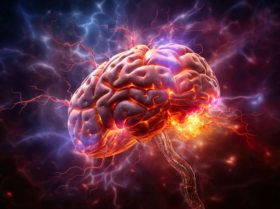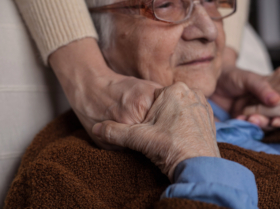Younger Onset Dementia
What is Dementia | Mate wareware?
Dementia | Mate wareware is the umbrella term for a number of diseases and causes of problems with thinking and memory that are severe enough to make managing day to day life more difficult. Signs and Symptoms can vary considerably but may include memory loss, poor concentration, difficulties with planning and organising, and disorientation problems.
Information Sheet
What is Younger Onset Dementia?
- Younger Onset Dementia is the name given to dementia that occurs in people under the age of 65, regardless of its cause.
- Any of the various causes of dementia can affect people under the age of 65 years and can be called ‘Younger Onset Dementia’, ‘Young Onset Dementia’ or ‘Early Onset Dementia’.
- The most common causes are Alzheimer’s Disease, Frontal- temporal Dementia, Vascular Dementia, and Lewy body Dementia. – Comprising of over 50% of cases.
- Other risk factors include prior head injury, Huntington’s Chorea, Downs Syndrome, and Alcohol/ Substance related brain injury. Some people, although they are very small in number, have a familial history of Younger Onset Demetia.
- Younger Onset Dementia can also develop without a history of any of the above risk factors.
- The complexity of diagnosing Younger Onset Dementia and capturing that health data makes it difficult to obtain reliable information regarding prevalence of Younger Onset Dementia among all people who live with dementia in New Zealand. Figures range from 3.8% to 7%. The interesting trend noticed by Brigid Ryan and her team from Auckland University , however, is that Maori and Pacific populations of Aotearoa have a higher incidence of Younger Onset Dementia than Asian and European populations. (Brigid Ryan et al prevalence of young onset dementia: nationwide analysis of routinely collected data)
Diagnosing Younger Onset Dementia
- The initial symptoms that occur in Younger Onset Dementia are the same as those that occur in older people. They include memory and language problems, difficulty with concentrating and completing complex tasks. Symptoms develop to the stage that they interfere with normal daily life.
- Diagnosing Younger Onset Dementia is often a long process. Medical professionals generally want to rule out other conditions such as stress/anxiety related disorders, depression, or menopause before making a diagnosis. People living with Younger Onset Dementia are more likely to be diagnosed with rarer causes of dementia that are not so easy to identify. It is recommended that GPs refer to specialist neurologists or psychiatrists to make the final diagnosis.
What you might see in Younger Onset Dementia
Because Younger Onset Dementia is classified by age rather than type, it is important that you use the Information sheets for the particular type of dementia your person living with dementia has to understand more about what you might see. Visit the Dementia New Zealand website or contact your local dementia organisation for information about the type of dementia that has caused the Younger Onset Dementia in this instance.
The additional challenges of Younger Onset Dementia
- People living with Younger Onset Dementia face different challenges than those who develop dementia at an older age. Issues that younger people face create different challenges:
- They are often still employed- or their partner is.
- They often still have financial responsibilities such as a mortgage, or children requiring financial support.
- They may still be parenting relatively young children.
- They may have elderly parents to care for.
- They are still likely to be physically fit and healthy.
- These issues place extra strain on a family, especially the partner/ spouse of a person diagnosed with Younger Onset Dementia. They often find the need to reduce their working hours or stop work completely to juggle the extra challenges that they now have. Also – relationships with any children in the family may also prove very challenging. If that is the case, it would be worthwhile to read ‘Discussing Dementia with Children’.
- Stigma and the responses of others can be a dilemma that people with Younger Onset Dementia need to confront. Many people find it difficult to understand why a relatively fit, young person can have dementia, given it is usually a disease that affects older people. This can lead to less social interaction, creating an increased risk of isolation, especially for the person with dementia – but also other family members as well.
- Responding to the changes and losses in daily living and working through the associated grief of Younger Onset Dementia occurring at their relatively young age is emotionally taxing.
- Navigating the support systems available for a person living with Younger Onset Dementia and their family can be challenging. The current dementia support pathway for younger onset clients and their families, is still under development. It can take extra time and effort to obtain the support they deserve. This may involve financial, legal, social, and emotional support in addition to the standard supports offered to people living with dementia. Age-appropriate services can also be difficult to find, bearing in mind that a person living with Younger Onset Dementia may be a generation younger than those who acquire dementia in their senior years, therefore world views and interests are likely to be very different.
What You Can do to Help
- Learn as much as you can about dementia. This will help you understand and respond appropriately to the challenges faced by the person with dementia you are supporting.
- If you are a friend or extended family member, offer friendship and practical support to the family as required. The isolating nature of Younger Onset Dementia is very real, so friendly support is hugely valuable and greatly appreciated.
- Seek help when possible
- Contact your Local Dementia NZ affiliate for support. The team at Dementia New Zealand are always happy to help with a listening ear and support. Take advantage of support groups offered by local DNZ affiliates. these groups offer support, care and the opportunity to talk with others walking a similar journey.
- Seek help with financial, Legal, and care support advice as you need it. Your Local dementia affiliate will be able help you connect with professionals who can help you.
- Encourage and enable the person you know with Younger Onset Dementia to get involved in a Younger Onset programme for active younger people providing specialised holistic support if possible. Being established in such a programme will help to minimise the feelings of isolation that are very real for the person with dementia, as they will help feel understood and that they belong to a group of people who are walking a similar journey to them. Others who have been part of the programme at Dementia Canterbury say “The younger Onset Programme provides me with a sense of wellbeing – I am traveling with others – not on my own.” “There are feelings of isolation – but the other people in the group understand.”
Useful websites and resources
- Dementia Canterbury Younger Onset Dementia Programme
- Dementia New Zealand Foundation – Darral Campbell: Younger Onset Dementia Services
- Young Dementia Network
- The Care and Dementia Podcast Series – Apple Podcasts
- Dementia UK – A life with dementia Podcast Series
- Dementia New Zealand – Head On by Carl Hayman book review
- Dementia Australia – Younger Onset Dementia
- Younger Onset Dementia Aotearoa Trust
- New Zealand Dementia Foundation – Supporting People with Younger Onset Dementia
- University of Auckland – Dementia prevalence estimation among the main ethnic groups in New Zealand: a population-based descriptive study of routinely collected health data.

